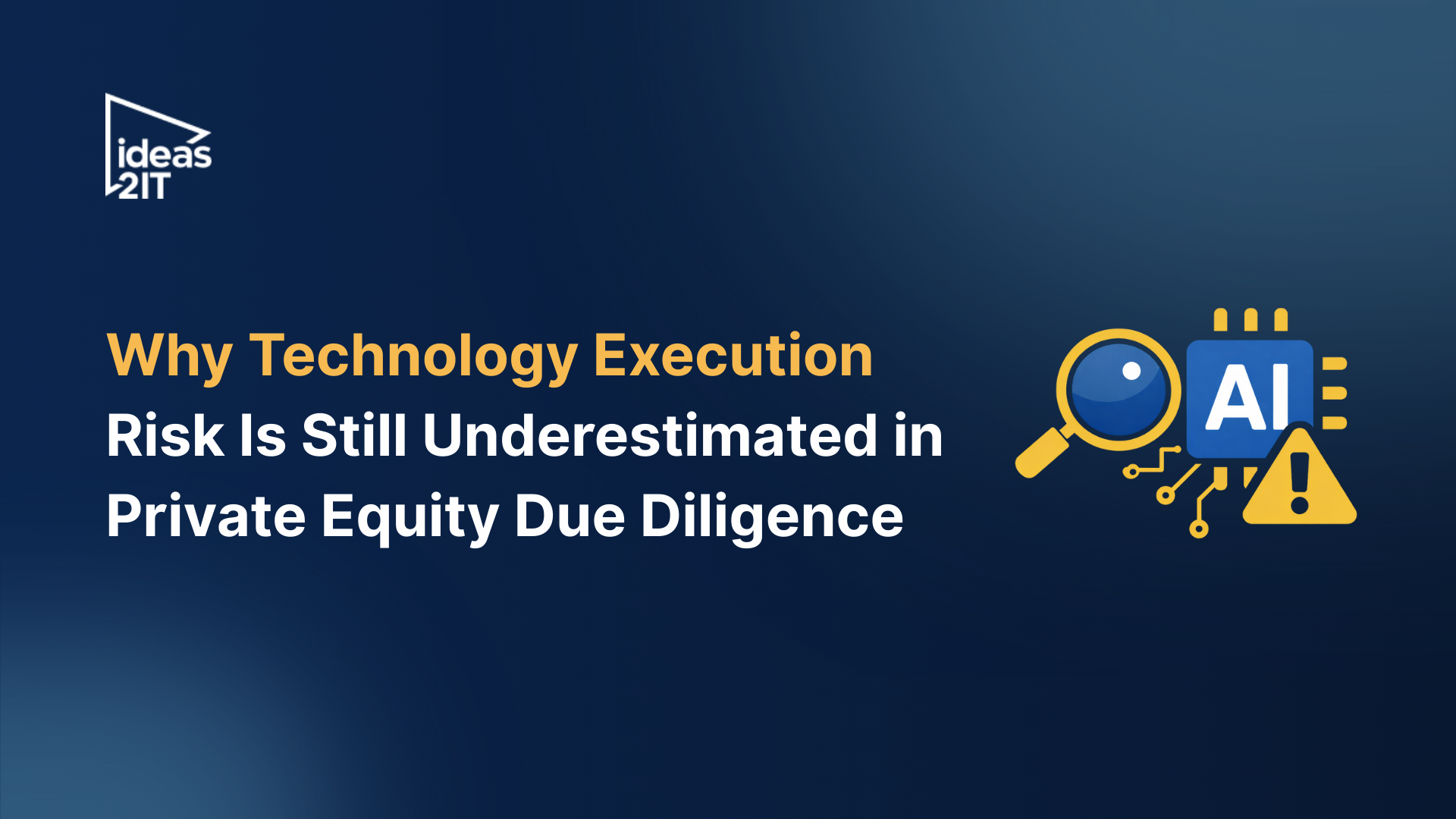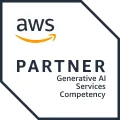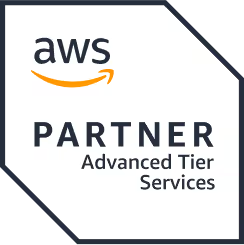RPA in Healthcare: Use Case, Benefits & Challenges
TL'DR
A fast-changing healthcare environment is pressing the healthcare organizations to orchestrate innovative approaches and achieve high-quality, cost-effective, patient-centered care.
Process efficiency wherever possible is a must for optimal patient care and profitability. This is where RPA comes into play in the healthcare industry
What is Robotic Process Automation
Robotic Process Automation (RPA) is a technology that uses software robots, or "bots," to automate repetitive, rule-based tasks typically performed by humans. These tasks can include data entry, transaction processing, and handling customer inquiries.
RPA tools are designed to interact with applications and systems in the same way that a human would, but they can work faster, more accurately, and around the clock.

RPA is a handy and quick-to-implement solution for the healthcare industry, applicable to processes ranging from patient registration to claim settlement.
Error-prone and time-consuming human operations with well-defined workflows can be easily mimicked using RPA. With RPA, we can log into any application, access emails, perform copy-paste tasks, extract data from different file formats, and send timely reminders. As the healthcare industry continually seeks to improve efficiency and cut costs, RPA helps achieve these goals in a short span of time.
6 Major Use Cases of RPA in Healthcare
Outlined below are some of the existing processes that can benefit from the adoption of RPA:Admission Processes Patient admission process often go from desk to desk, taking longer wait time for patients. Automating admission processes can save time, improve the patient experience and generally enhance effective operational procedures. In typical admission process, lot of wait time can be saved if RPA is implemented.For example, out-patient registration, time between the billing and diagnostic procedure, submission of reports to doctor for diagnosis, purchase of medicine and collaborating with medical insurance companies for advance payment requires lot of manual intervention and consumes lot of time. Implementing RPA in healthcare to replace the manual process with automation will increase the accuracy and reduce the process cycle time.
Critical care and Emergency Operations
In critical care and emergency room processes, many hospitals face overwhelming tasks related to core activities such as registration, check-in, and the availability of physicians and specialists. If these processes are not streamlined, patients may end up waiting too long for treatment. In critical care and emergency situations, serving patients in a timely manner is crucial.
Transfers to Other Hospitals
Disjointed workflows and a lack of collaboration systems between hospitals can cause delays in transferring patients who require inter-hospital referrals. Robotic Process Automation (RPA) adoption in healthcare can streamline these processes, enabling seamless collaboration with other hospital applications and ultimately reducing transfer delays.
Medication Processes
Medication error is a major concern for hospital administrators. Patient safety is often contingent on correct and timely administration of treatment. With several medications at their disposal, health professionals may err in the type and dosage of medication administered.
RPA in the pharmaceutical industry by significantly reducing medication errors and enhancing operational efficiency. RPA can automate the creation of pre-orders for patients based on doctors' prescriptions entered online or through scanning. This ensures accuracy in medication type and dosage, minimizes human error, and streamlines the entire medication administration process.
Order of Drugs and Hospital Stationery
Drug shortages and delays can significantly impact patient care. RPA can address these challenges by automating real-time inventory tracking, reordering medications based on usage patterns, and optimizing storage locations. This not only minimizes medication errors but also reduces costs associated with waste and improves staff productivity.
Patient Discharge
Another important RPA use case in healthcare could be overseeing the discharge of patients. Discharge of patients takes lot of time as it involves lot of processes like preparation of discharge summary, approval, creation of pending payment bill, return of unused drugs and stationery and final bill settlement. While bed availability and system capacity can determine patient flow, delays are often caused by process issues which involves lot of human intervention.Usage of RPA in patient discharge can help in better planning of bed availability and inpatient management.
Claim Settlement
Long claim processing times can frustrate patients and strain relationships with insurance companies. RPA can streamline this process by ensuring accurate and complete patient data is delivered to third-party insurers quickly and efficiently. This leads to faster claim settlements for patients, improving their overall healthcare experience.
Benefits of RPA in Healthcare
Let’s dive in to see how healthcare organizations can benefit from the RPA integration into their ecosystem.
Enhanced data interoperability and security
Integrating Robotic Process Automation (RPA) advances data interoperability in healthcare by leveraging AI technologies such as Machine Learning and Optical Character Recognition (OCR). This allows seamless data exchange between previously isolated systems like electronic medical records (EMRs) and electronic health records (EHRs).
Healthcare providers can now efficiently gather and process data from various sources, enhancing access to essential information. Automated systems ensure secure data handling by restricting access to authorized personnel, aligning with HIPAA guidelines for patient data security and privacy.
RPA enhances data security through encryption, protecting data from unauthorized access and ensuring compliance with HIPAA regulations.
Improved healthcare monitoring and workflow management
Diagnosing and treating patients both before and after discharge is now made easy for clinicians and healthcare professionals by providing access to easy data and real-time insights. Additionally, RPA bots can swiftly alert red flags like emergency situations or discrepancies to healthcare providers.
From patient scheduling to claims management, RPA in healthcare minimizes errors and reduces the need for manual intervention. RPA accelerates mundane tasks multiple times faster than humans, effectively establishing a virtual workforce that operates continuously.
By automating these manual tasks, RPA liberates employees to tackle complex challenges that demand human judgment, optimizing staff capacity and enabling them to focus more on enhancing patient care and adding value to healthcare workflows.
Improved accuracy
RPA significantly enhances accuracy in healthcare operations by automating tasks such as data entry and record management, thereby minimizing the potential for human error. This automation leads to heightened precision, enhanced data integrity, and dependable processing of medical information. With RPA, clinicians can confidently ensure precise clinical documentation and accurate processing of patient information.
Optimized operational cost
Implementing robotic process automation streamlines operational costs by automating repetitive and time-consuming tasks, reducing the reliance on paper-intensive processes, minimizing the need for human intervention.
RPA enables healthcare providers to automate functions like appointment scheduling, revenue cycle management, and claims processing, leading to substantial savings in staffing expenses and improved efficiency.
By mitigating human error, RPA contributes to fewer costly mistakes and boosts the overall effectiveness of administrative tasks.
Efficient revenue management
Healthcare systems often face challenges with extensive code changes in revenue cycles and billing criteria. RPA provides a seamless adaptation to these dynamic requirements, simplifying the complexities of medical billing and revenue management.
By integrating RPA, healthcare organizations can effectively streamline claim management processes, leading to quicker resolutions and heightened customer satisfaction.
Additionally, RPA automates accounts payable and data digitization processes, enhancing billing efficiency. By modernizing these administrative processes, healthcare organizations can achieve substantial savings in labor and financial resources.
It facilitates seamless extraction, analysis, validation, and updating of patient bills for payment initiation and report management autonomously.
Improved regulatory compliance
RPA bots ensure that data processing is easily traceable and auditable, promoting data consistency and reducing compliance issues.
In healthcare, RPA bots streamline data handling and reporting, optimizing processes to comply with regulations governing sensitive patient information.
This systematic approach enhances adherence to regulatory requirements and organizational policies, ultimately raising overall compliance standards in healthcare environments.
Summary
Ideas2IT stands at the forefront as an expert in Robotic Process Automation for healthcare. With a deep understanding of industry challenges and a robust technological foundation, we excel in deploying RPA solutions that optimize processes, reduce operational costs, and enhance overall efficiency in healthcare settings.
By leveraging our expertise, healthcare providers can streamline administrative tasks, improve accuracy in data management, and ultimately focus more on patient care. Our commitment to innovation and tailored solutions ensures that we continue to empower healthcare organizations to achieve their operational goals effectively and sustainably in this rapidly evolving digital landscape. Reach out to us to transform your healthcare operations with our RPA implementation.







.png)

.png)
.png)
.png)
.png)












